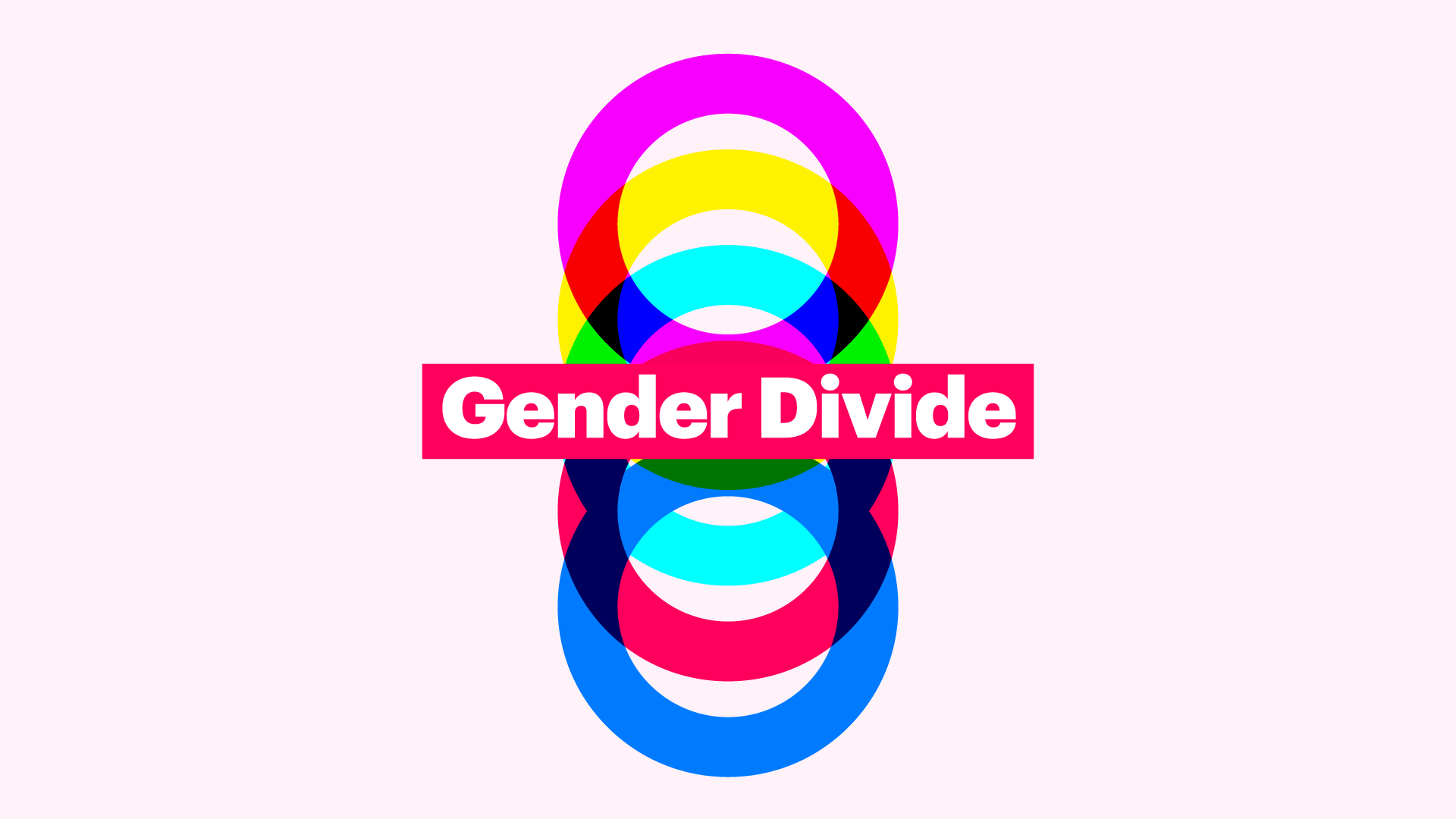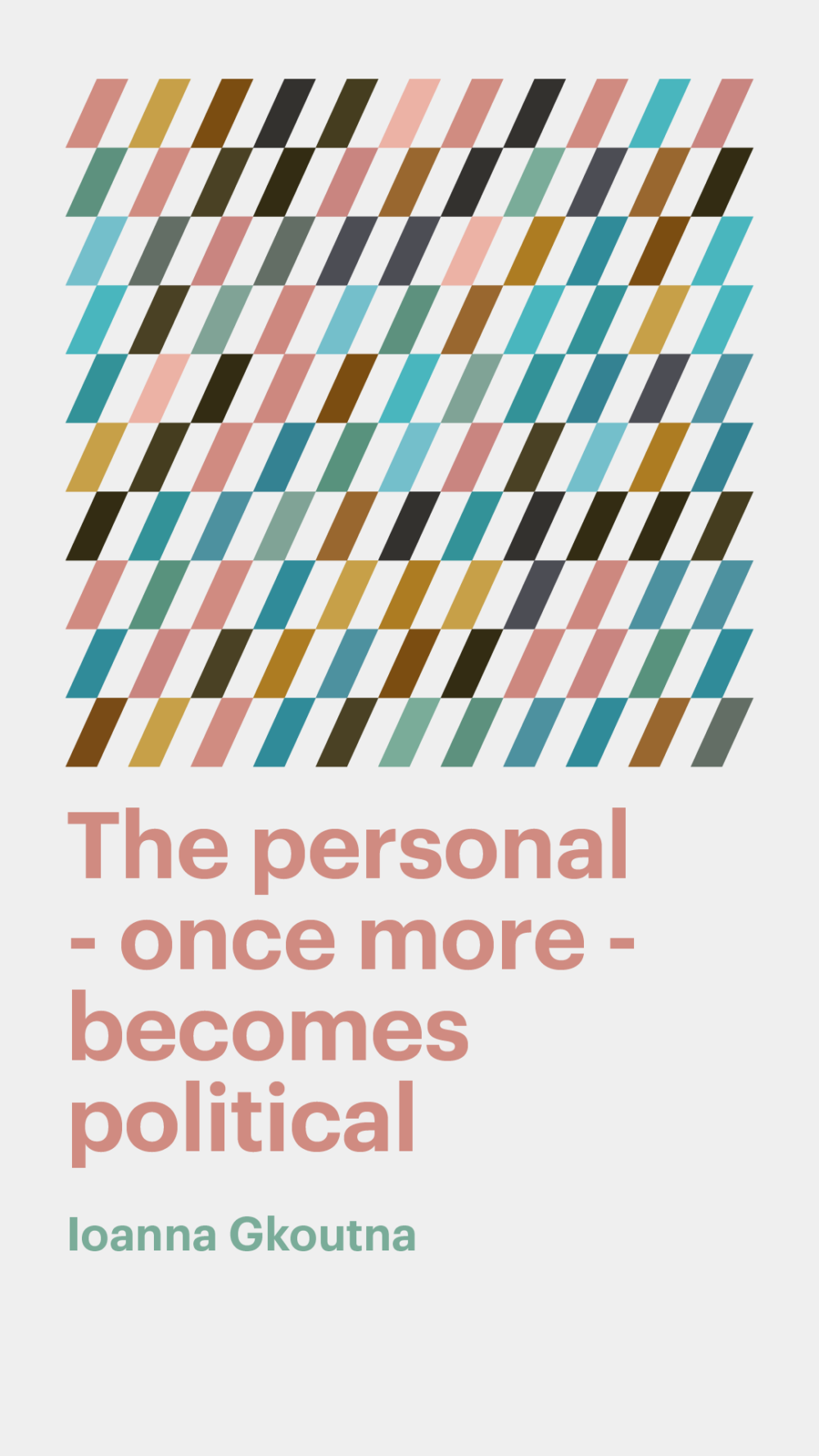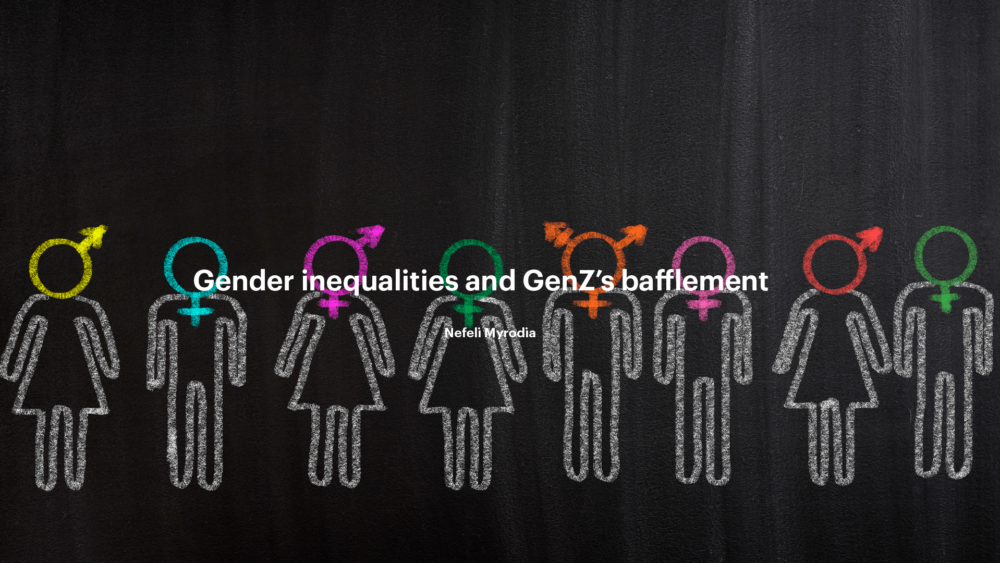
Survey findings for Eteron and King’s College London’s project
A survey on perceptions of gender relations was conducted by aboutpeople on behalf of Eteron Institute and King’s College London. 2,074 individuals took part and the survey was conducted between 4 and 6 June 2024. The questionnaire includes several questions in common with a similar survey conducted by King’s College in Great Britain, which gives the research team the opportunity to compare the two societies on these particular topics. The responses broken down by gender, age, place of residence and education also require further in-depth analysis and will be presented by the research team in separate papers.
Α) Gender Roles
We started the survey with a first round of 16 questions attempting to record people’s perceptions about gender roles.
79.5% of participants believe that women are more likely to be sexually harassed by a stranger compared to 19.5% who felt that this scenario is equally likely for both genders. If we break down the responses according to the respondents’ age group, the picture as far as the above is concerned is mixed.
38.5% of those surveyed think that women are more likely to be carers of family members compared to 56.5% who think it is equally likely for both genders to undertake such a role, while 4.6% think this is more true for men. In terms of the age classification, younger people think that women are more likely to take care of other family members.
58.4% of the participants believe that women are more likely to do housework, 44.7% believe that both genders are equally likely to do it, while only 0.1% believe that men are more likely to undertake that effort. In terms of age breakdown, the picture is mixed.
66.34% of respondents think that women are more likely to live longer compared to 26.8% who think this is equally likely for both genders, while only 1.3% think this is more likely for men. In terms of the responses’ breakdown by age group, the older the age, the higher the conviction that women are more likely to live longer.
5.4% of the people surveyed believe that women are more likely to go to university compared to 88.9% who believe that it is equally likely for both genders, while 5% believe that men are more likely to do so. In terms of age classifications, the results do not reveal any notable differences.
9.1% of the respondents feel that women are more likely to be in a good mood compared to 73.3% who believe that this is equally likely for both genders, while 13.5% think that this is more true for men. In terms of age categorisations, the results present no notable differences.
10.6% of the participants think that women are more likely to be overweight compared to 72.3% who think that this is equally likely for both genders, while 14.4% think that this is more true for men. In terms of age classifications, the older the interviewees are, the stronger the opinion that women are more likely to be overweight.
9.4% of respondents think that women are more likely to get sick easier compared to 65.7% who think that this is equally likely for both genders, while 21% think that this is more true for men. In terms of age breakdown, the picture is mixed.
79.4% of those surveyed think that women are more likely to be physically abused compared to 18.9% who think that this is equally likely for both genders, while only 1% think that this is more likely to happen to men. In terms of age breakdown of the responses, the older the age of the participants, the stronger the conviction that women are more likely to be physically abused.
18.7% of respondents think that women are more likely to feel lonely compared to 67.5% who think it is equally likely for both genders, while 12.3% think this is more true for men. In terms of age categorisations, the older the person’s age, the stronger the estimate that women are more likely to feel lonely.
Only 0.6% of people surveyed reckon that women are more likely to be entrepreneurs compared to 52.5% who think it is equally likely for both genders to own a business, while 46.4% think that this is more likely for men. In terms of replies’ breakdown by age group, the younger the age the stronger the conviction that men are more likely to be entrepreneurs.
Only 1.7% of respondents think that women are more likely to work full-time compared to 69.6% who think that this is equally likely for both genders, while 27.5% think that this is more likely for men. In terms of the responses breakdown per age group, the only significant differentiation is recorded among 65+ participants, who give an increased percentage in the response that this is more true for men.
66.7% of respondents think that women are more likely to receive sexual messages from strangers compared to 31.2% who think it is equally likely for both genders, while only 0.6% think this is more likely to happen to men. In terms of age categorisations, the younger the participant’s age, the stronger the conviction that women are more likely to receive unsolicited sexual messages from strangers.
Only 1% of respondents think that women are more likely to be CEOs or high ranking managers compared to 42.4% who think that this is equally likely to happen to both genders, while 56% think that this possibility is stronger for men. In terms of age categorisations, the picture is mixed.
Just 0.4% of the participants believe that women are more likely to go to prison compared to 36.2% who think it is equally likely for both genders, while 59.2% think this is more true for men. In terms of age categorisations, the picture is mixed.
General observations
The survey records both the positive steps that have been taken in terms of equality as well as the problems that still exist. In terms of stereotypical derogatory perceptions of “female traits”, it appears that they are slowly becoming extinct. Also, there is an overall perception that women participate in education on an almost equal level. However, interviewees are aware of the great inequalities at the workplace as well as the threat of violence against women.
Β) Terms
Afterwards, we asked a second round of questions, in order to find out whether the survey participants were familiar with the specific terms that describe gender inequality, or not.
66% of people surveyed know what the term toxic masculinity means, compared to 11.1% who have heard of it but don’t know what it means, while 20.8% have never heard of it. When it came to classifying the participants’ replies according to their age group, we found that the younger their age, the higher the number of people who know what the term means.
66% of the participants know what the term patriarchal society means compared to 11.1% who have heard it but do not know what it means, while 20.8% have never heard the term before. In terms of age classifications, the younger the age, the more people know what the term means.
98% of respondents know what the term feminism means compared to 1.6% who have heard of it but do not know what it means. In terms of age classifications, there were no significant differences recorded.
23.3% of respondents know what the term woke culture means compared to 30.4% who have heard of it but do not know what it means, while 40.9% have never heard of it. In terms of age classifications, the younger the age, the more people know what the term means.
General observations
By and large, the public knows and understands the terms related to gender inequalities. Younger people seem to be the group that is most familiar with them.
C) Greek society
The third round of questions aimed to study people’s perceptions regarding gender inequalities within Greek society.
75.1% of the participants agree or somewhat agree with the view that Greek society can be described as patriarchal compared to 22.2% who disagree or somewhat disagree.
79.9% of those surveyed agree or somewhat agree with the view that women in Greek society face more discrimination than men, compared to 18.4% who disagree or somewhat disagree.
68.3% of the survey participants agree or somewhat agree that crimes of violence against women should be punished more severely, while 27.9% disagree or somewhat disagree with that position. In terms of the responses’ breakdown based on the participants’ age group, the older the participants, the stronger the agreement with this particular view.
15.4% of the respondents agree or somewhat agree with the opinion that women in Greece have an easier life than men, compared to 79.8% who disagree or somewhat disagree with it.
34.7% of the participants in the survey agree or somewhat agree that men in Greece work harder than women to earn more money compared to 61.5% who disagree or somewhat disagree with this statement.
57.4% of respondents agree or somewhat agree that feminism can help women achieve a better life compared to 35.9% who disagree or somewhat disagree.
67.4% of those surveyed agree or somewhat agree with the view that nowadays it is more difficult to embrace ancestral/traditional values regarding gender relations, compared to 23.4% who disagree or somewhat disagree. When it comes to age categorisations, the older the participants, the stronger their endorsement of that particular view.
35.8% of the respondents agree or somewhat agree that women exaggerate when it comes to injustices they suffer due to their gender, compared to 59.7% who disagree or somewhat disagree with this. Again in this question, the older the participants are, the stronger the agreement with that view.
General observations
The dominant perception is that women are subject to severe gender-based discrimination. In some of the questions, younger people appear to be more progressive regarding issues around equality.
D) Institutions
The fourth round of questions focused on perceptions regarding the various institutions’ contribution towards the goal of gender equality.
65.8% of the participants agree or somewhat agree with the establishment of the term femicide compared to 30.7% who disagree or somewhat disagree. In terms of age classifications, no significant differences are recorded.
61.28% of those surveyed agree or somewhat agree that the education system promotes gender equality compared to 35.3% who disagree or somewhat disagree.
55.5% of the respondents agree or somewhat agree that social media promote gender equality compared to 39.1% who disagree or somewhat disagree. In terms of age categorisations, higher levels of agreement are recorded in the 17-24 age group.
46.9% of the respondents agree or somewhat agree that the media promote gender equality compared to 49.8% who disagree or somewhat disagree. In terms of age categorisations, lower levels of agreement are recorded in the 25-34 and 44-55 age groups.
48% of people surveyed agree or somewhat agree that the State promotes gender equality compared to 48.4% who disagree or somewhat disagree.
36.4% of the respondents agree or somewhat agree that private businesses promote gender equality compared to 56.6% who disagree or somewhat disagree. In terms of the responses breakdown per age group, no notable differences are recorded.
40.8% of the respondents agree or somewhat agree that political parties promote gender equality compared to 53.8% who disagree or somewhat disagree. In this case, we observed that the older one’s age, the stronger the agreement with this position.
44.9% of the participants agree or somewhat agree that NGOs promote gender equality compared to 41.8% who disagree or somewhat disagree.
General observations
On the whole, opinions are divided regarding the various institutions’ contribution towards the cause of gender equality, a fact that should definitely raise concerns.
Ε) LGBTQI+
The survey also included some questions around LGBTQI+ related topics.
60.1% of the respondents agree or somewhat agree with same-sex marriage compared to 30.4% who disagree or somewhat disagree. The younger the age group of the participants, the stronger the agreement with the above.
36.7% of the respondents agree or somewhat agree with same-sex adoption compared to 59.9% who disagree or somewhat disagree. In this case too, the younger the participants’ age, the stronger the agreement with the above.
Only 17.1% of the respondents agree or rather agree that trans people lead a decent life in Greece compared to 69.9% who disagree or rather disagree.
General observations
As far as marriage and adoption by same-sex couples are concerned, the overall image remains unchanged compared to previous surveys and research papers. Younger people appear to be more progressive when it comes to LGBTQI+ rights.
F) Past, present and future
The survey’s last questions round registered people’s views on the genders’ reality in the past, the present and the future.
17.5% of the participants believe that it is harder or much harder to be a man than a woman today, compared to the past. 42% think that gender makes no difference. 34% think that compared to the past, nowadays it is harder or much harder to be a woman than a man. By breaking down the responses according to age group, we found that the older the participants, the stronger the agreement with the view that there is no difference.
73.8% think that 20 years ago it was harder or much harder to be a woman than a man. 19.6% believe it made no difference. 1.9% think that at that moment in time, it was harder or much harder to be a man.
19.2% think that in 20 years it will be harder or much harder to be a man than a woman. 53.1% think that one’s gender will make no difference. 11% think it will be harder or much harder to be a woman than a man.
General observations
The participants’ replies to that last round of questions shows that there has been significant progress regarding equality, but there is still a lot to be done. The future prospects according to those interviewed are optimistic for women.



